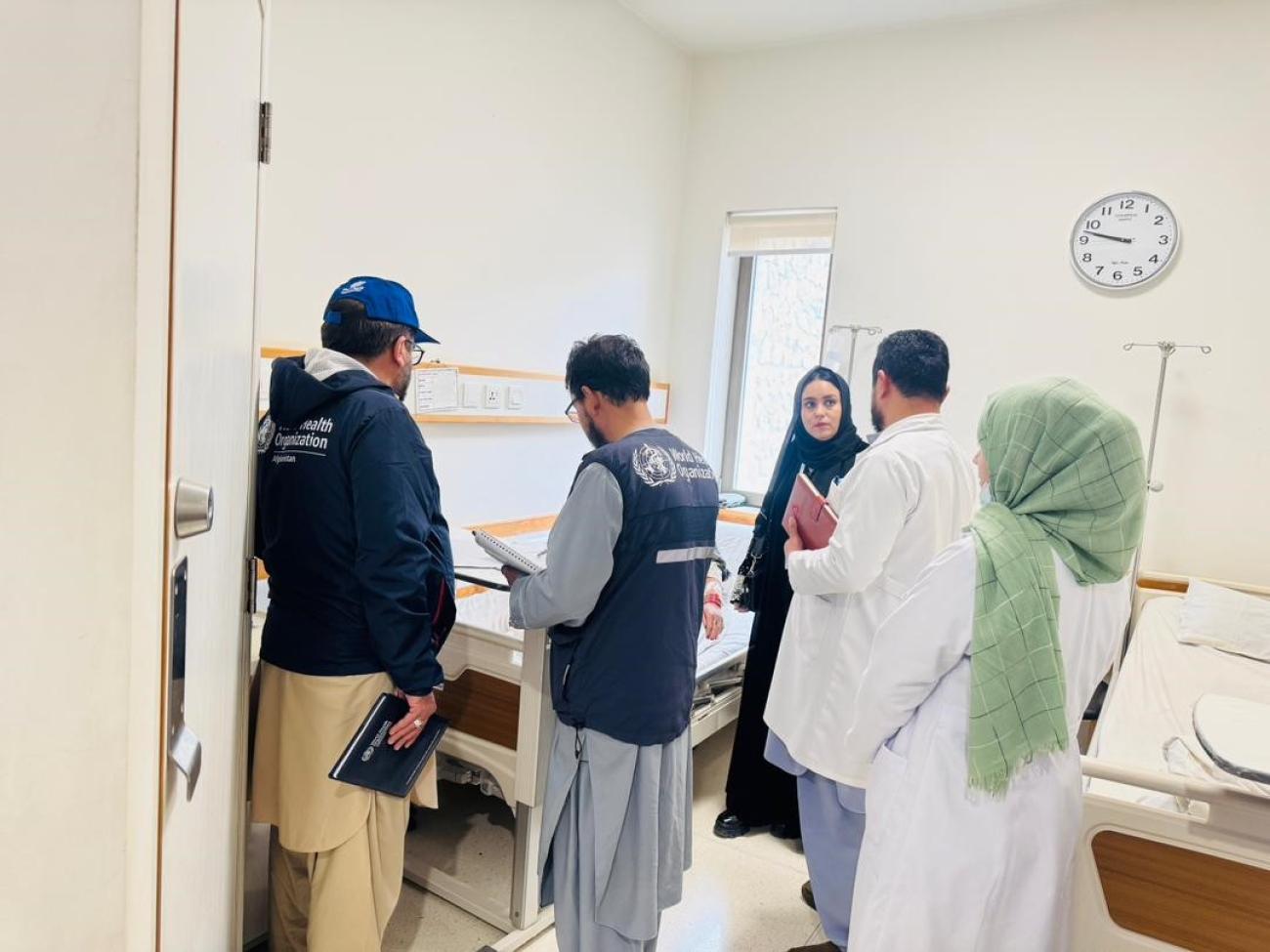Mental health stories: the will to recover

Years of conflict and economic hardship have exacted a heavy toll on mental health, depression, anxiety, post-traumatic stress and other conditions.
Kabul, Afghanistan – In Afghanistan, years of conflict and economic hardship have exacted a heavy toll on mental health, leaving many struggling with depression, anxiety, post-traumatic stress and other conditions. To address this, WHO, with the support of the European Union (EU), is bringing life-changing mental health and psychosocial support programmes to those most in need.
Through hospitals and community centres, trained health workers are providing counseling, group therapy and stress management sessions to thousands across the country. Specialized wards have been established for vulnerable groups, including women, children, the elderly and people with disabilities, delivering targeted care and support.
Despite these efforts, most of Afghanistan’s 34 provincial hospitals still lack specialized mental health services. To bridge the gap, WHO launched a pilot initiative to integrate acute mental health wards in selected hospitals. Eight-bed wards were set up in Bamyan, Badakhshan, Farah and Nimroz, and a larger 20-bed facility was established at Ayno Mena Hospital in Kandahar. These wards, along with outpatient mental health and psychosocial support (MHPSS) clinics, provide essential care to people who previously had no access to mental health services.
Thanks to EU funding, these facilities are not just treating symptoms, they help individuals rebuild their lives, reconnect with loved ones and regain a sense of purpose and integrity. Sustaining and expanding these services is essential to ensure more Afghan communities can access the support they deserve.
Mahdiyah, Lal and Homa are among those whose lives the programme has impacted. Mahdiyah, who lost her brother, found the strength to rebuild her life through months of therapy and peer support. Lal, after losing his home to conflict, regained a sense of purpose and stability through community-based counseling. Homa, struggling with anxiety, learned to cope and reconnect with life through group sessions. Their stories show how targeted support can help people heal, rebuild and find hope amid life’s toughest challenges.
“These stories highlight the life-changing impact of WHO’s Mental Health and Psychosocial Support (MHPSS) Project in Afghanistan,” said WHO Representative and Head of Mission in Afghanistan Dr Edwin Ceniza Salvador. “Currently, WHO has managed to sustain 5 integrated MHPSS services, both inpatient and outpatient, until the end of November 2025. However, the future of these lifesaving services remains uncertain, as does the possibility of expanding them to the remaining 27 provincial hospitals, many of which operate under the Health Emergency Response (HER) Project.”
Mahdiyah pieces her life back together
When Mahdiyah lost her brother, her feelings of sadness and isolation grew. Daily routines became overwhelming and she withdrew her from friends and work.
On 19 December 2024, Mahdiyah arrived at Badakhshan Provincial Hospital. For 3 weeks she attended sessions that helped her piece her life back together.
"I felt completely lost before I joined the treatment programme at Badakhshan Hospital,” says Mahdiyah. “The therapy sessions helped me rediscover myself, a step at a time. I learned how to calm my mind and connect with others. I couldn’t have done this without the support I received from the caring health workers at the hospital."
Fighting chronic depression with determination and spirit
For 3 years Lal despaired about his life. He tried seeking help in different cities but every attempt ended in disappointment. On 17 June 2024 Lal walked into Zaranj Provincial Hospital, feeling he had nowhere else to turn.
The hospital staff diagnosed severe depression. Instead of just handing Lal medication, they offered a comprehensive plan, a combination of counseling sessions and targeted treatment.
Lal began to notice small changes with each session. “I finally started sleeping better and became more comfortable and open,” he says. “The treatment programme allowed me to hear from others who had faced similar problems.”
A new start for Homa
At 32, Homa felt as if her life was falling apart. She experienced overwhelming sadness and thought of giving up. Visiting Bamyan Provincial Hospital in December 2024, the doctors listened closely and diagnosed her with severe depression.
Homa says each structured session became a small step towards a cure. “Talking to someone who understood my pain made a big difference. For the first time, I felt like someone was really listening to me and sharing my fears and worries.”

